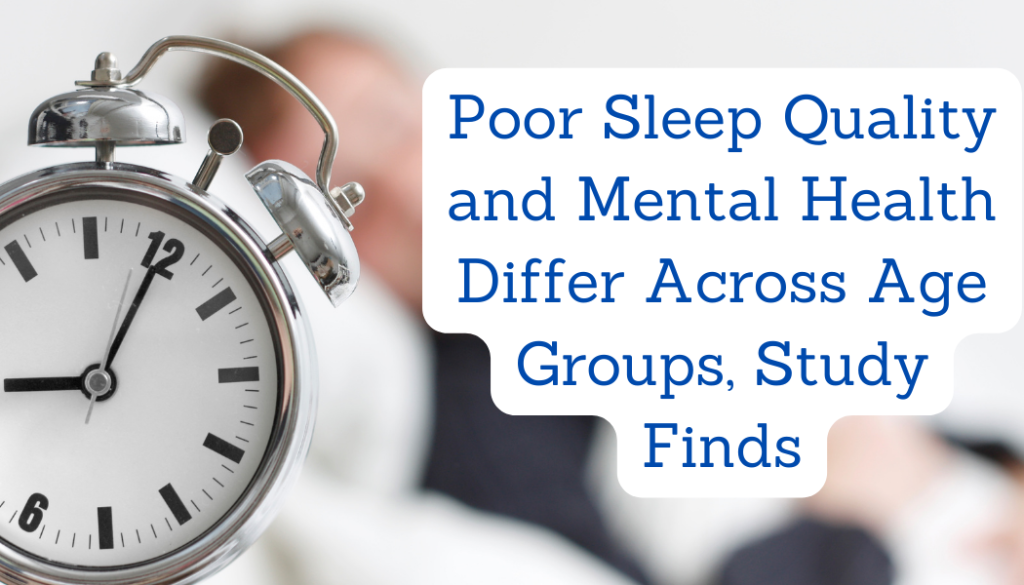A new study has highlighted the dangers of poor sleep quality, showing that it may be a significant predictor of increased mortality risk among middle-aged and older adults. The findings come from a population-based longitudinal study conducted in rural Ecuador, and its results should serve as a wake-up call to anyone who underestimates the value of quality sleep.
What Was the Study About?
The research, published in Sleep Health: Journal of the National Sleep Foundation, was designed to explore the relationship between sleep quality and mortality risk. The study involved 1,494 participants, all aged 40 and above, living in rural Ecuadorian villages. Conducted over several years, the study used a well-established sleep evaluation tool, the Pittsburgh Sleep Quality Index (PSQI), to gauge the participants’ sleep quality.
The researchers set out to understand whether poor sleep quality over time could be linked to higher rates of death from any cause (known as “all-cause mortality”). The results were startling.
Key Findings
- Poor Sleep Means Higher Death Risk: Participants with poor sleep quality were found to be 38% more likely to die during the study than those who reported good sleep. This was after accounting for various factors like age, physical activity, and blood sugar levels.
- Higher Mortality Rates Among Poor Sleepers: During the study, 195 individuals died. Those with poor sleep at the beginning of the study had a mortality rate of 3.18 deaths per 100 people annually. This rate was nearly double the mortality rate of 1.58 deaths per 100 people per year among those with good sleep quality.
- Impact of Other Health Factors: Unsurprisingly, other health factors like advanced age, poor physical activity, and high blood sugar (linked to diabetes) also played significant roles in determining mortality. However, even when these were accounted for, sleep quality stood out as a major independent factor.
Why Sleep Quality Matters
Sleep is essential for more than just feeling rested. Poor sleep has been linked to a variety of health issues, including heart disease, diabetes, and cognitive decline. This new study shows that poor sleep may also reduce life expectancy. It isn’t just how long you sleep that matters, but how well you sleep.
Interestingly, previous research often focused only on the length of sleep, with studies showing that both too little and too much sleep can be linked to higher death rates. However, this study dug deeper into other sleep-related issues, such as the quality of rest, disturbances during the night, and whether people needed medication to sleep.
What Causes Poor Sleep?
Several factors can contribute to poor sleep quality. Common culprits include:
- Stress and Anxiety: Worries about work, finances, or personal life can lead to restless nights.
- Health Issues: Conditions such as sleep apnea, diabetes, and chronic pain often lead to disturbed sleep.
- Lifestyle Factors: Diet, lack of physical activity, smoking, and even excessive screen time before bed can negatively impact sleep.
In this study, participants with poor sleep were also more likely to have unhealthy diets, engage in little physical activity, and suffer from high blood sugar levels. These factors are often linked to poor overall health, which may contribute to both sleep difficulties and increased mortality.
The Impact of COVID-19
One unique aspect of the study was how it accounted for the effects of the COVID-19 pandemic on sleep and mortality. Sleep quality in the participants worsened significantly during the pandemic, likely due to the high levels of stress and disruption to daily routines caused by the virus.
However, the researchers also observed that sleep quality improved after the pandemic. Despite this improvement, the damage had already been done for many individuals, and those with consistently poor sleep during the pandemic had higher mortality rates.
Practical Tips for Better Sleep
Given the clear connection between poor sleep and health risks, improving sleep quality is essential. Here are some practical tips that can help you sleep better and, potentially, live longer:
- Stick to a Schedule: Try to go to bed and wake up at the same time every day, even on weekends.
- Create a Bedtime Routine: Engage in relaxing activities like reading or taking a warm bath before bed to signal to your body that it’s time to wind down.
- Avoid Electronics Before Bed: The blue light from phones, tablets, and computers can interfere with your body’s production of melatonin, the hormone that helps regulate sleep.
- Make Your Sleep Environment Comfortable: Keep your bedroom cool, dark, and quiet. Invest in a comfortable mattress and pillows.
- Watch What You Eat and Drink: Avoid large meals, caffeine, and alcohol before bed.
- Exercise Regularly: Physical activity can promote better sleep, but try not to work out too close to bedtime, as it may energize you and make falling asleep harder.
- Seek Professional Help: If you continue to struggle with sleep despite making lifestyle changes, it may be worth seeing a doctor or sleep specialist.
Conclusion
The research paints a clear picture: sleep quality is not something to be taken lightly. The findings suggest that addressing sleep problems early in life could help reduce the risk of early death, particularly among older adults.
In a world that often encourages late nights and constant productivity, it’s easy to let sleep take a backseat. But if there’s one takeaway from this study, it’s that good sleep isn’t just about feeling refreshed the next day — it’s about living a longer, healthier life. By making small changes to improve your sleep quality, you could significantly improve your overall well-being and longevity.
So, tonight, when you’re tempted to stay up late scrolling on your phone, consider turning in early instead. Your future self will thank you.




